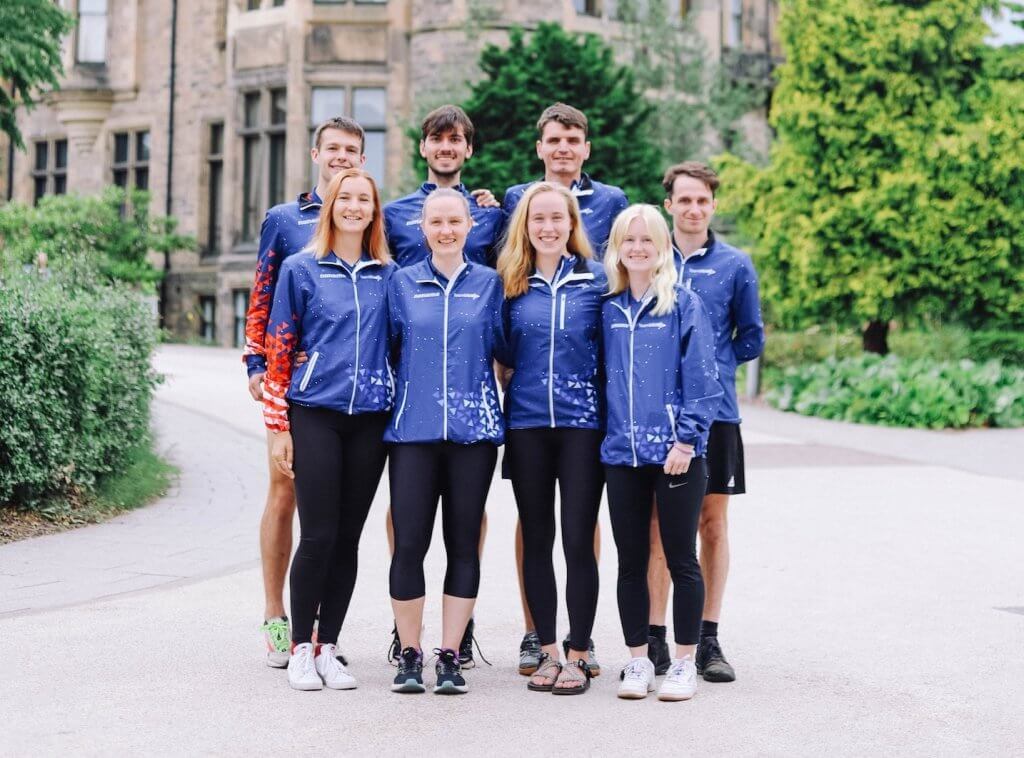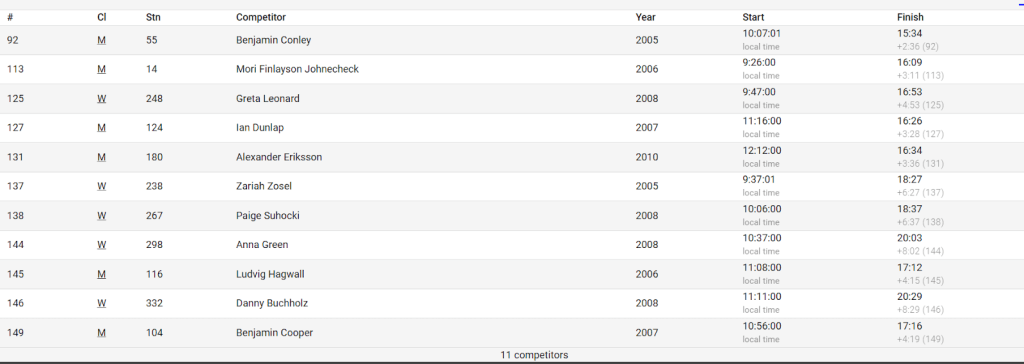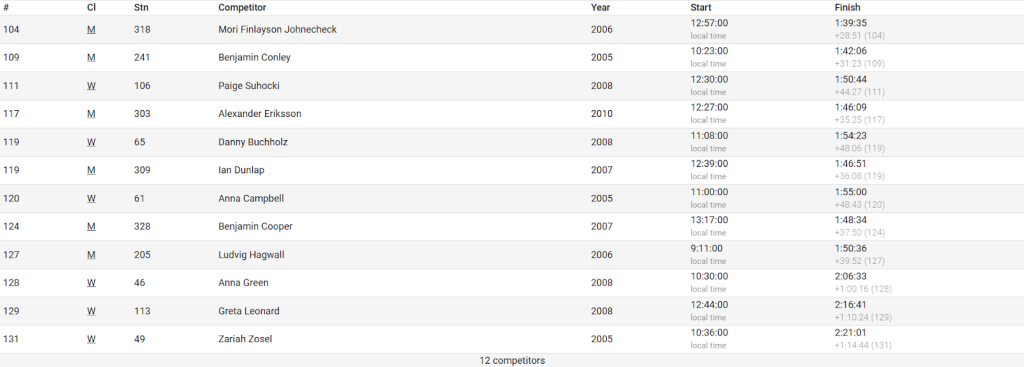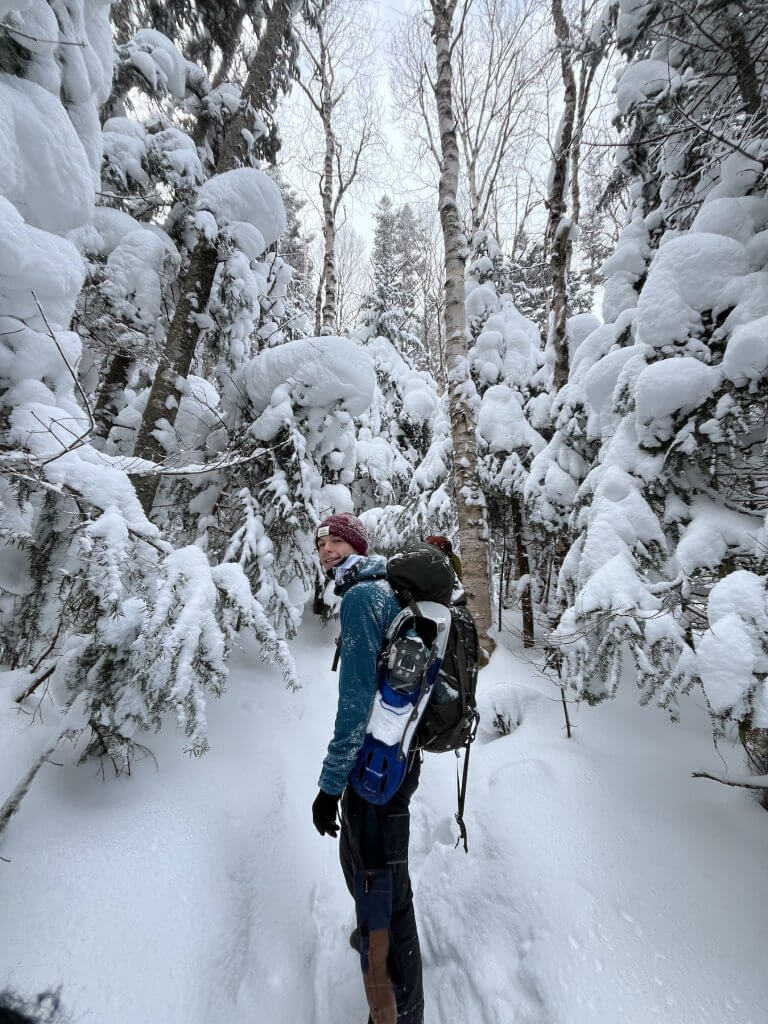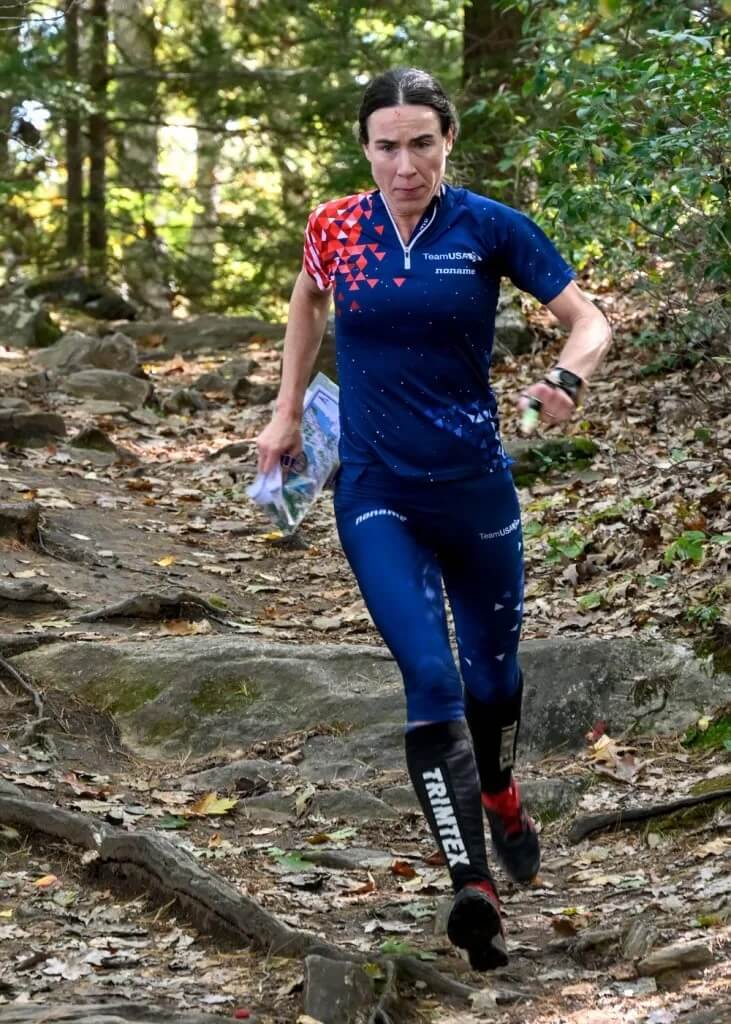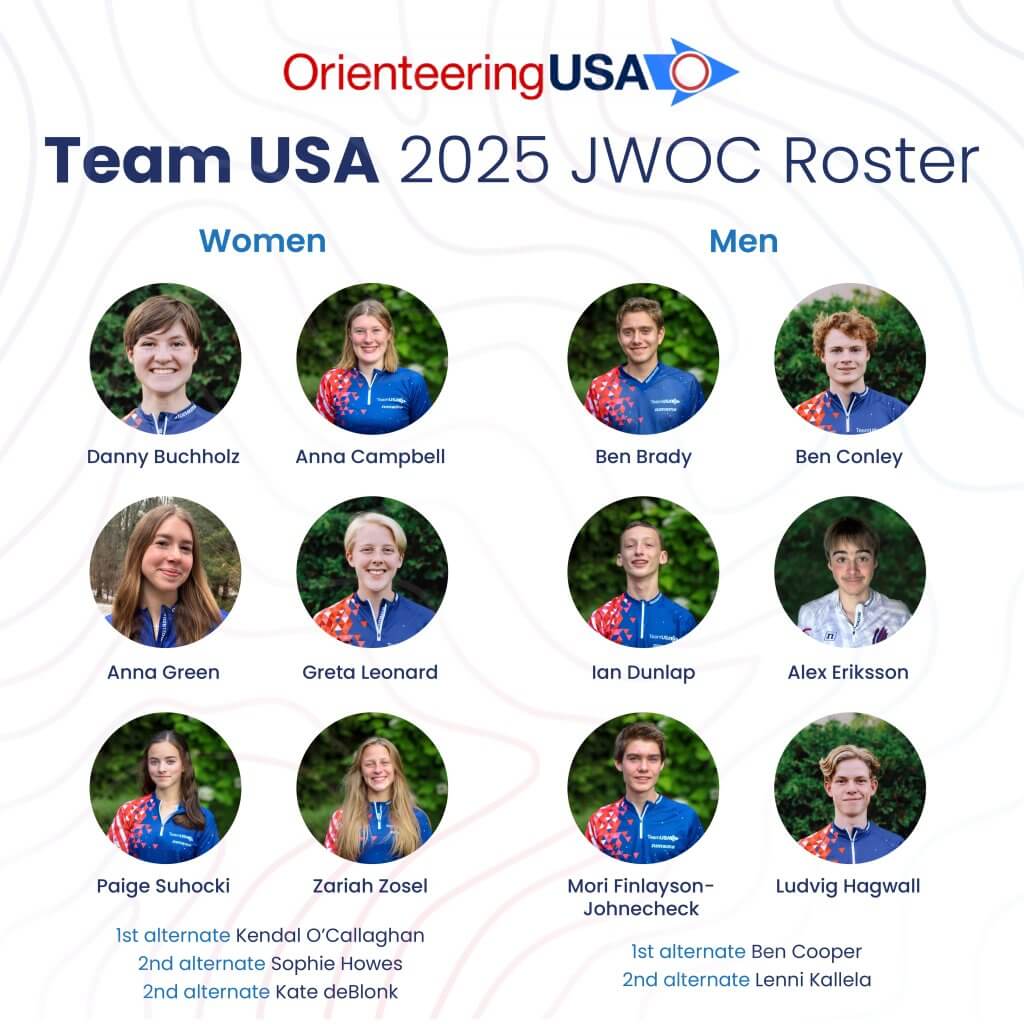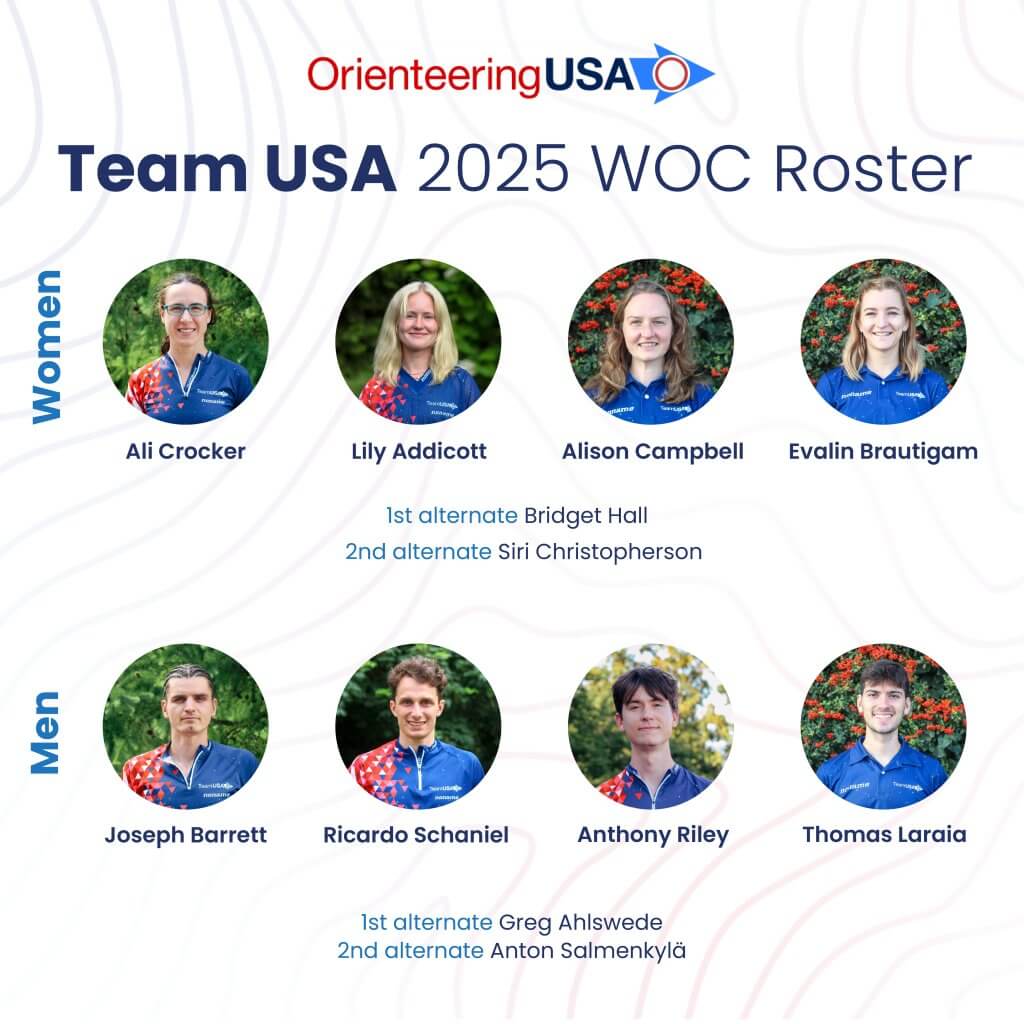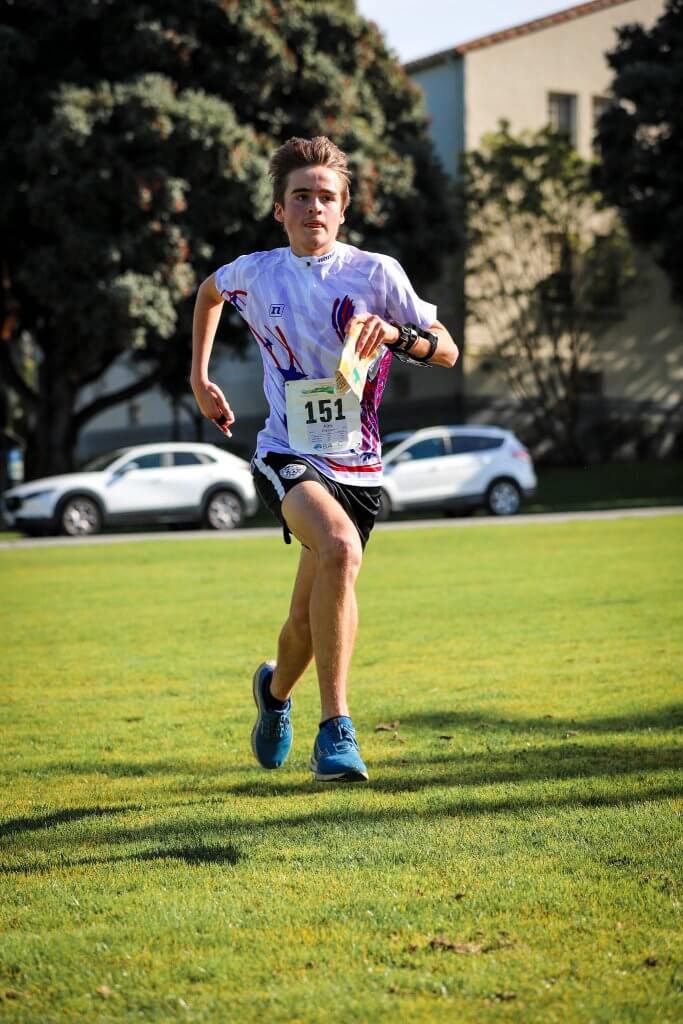2026 US National Team Announced
The Selection Committee (Peggy Dickison, Matt Smith, and Will Enger) reviewed all applications to determine which athletes earned a place on one of the three squads: Elite, Performance, and Junior.
This year marks a significant transition, as four long-time competitors—Greg Ahlswede, Eric Bone, Alison Campbell, and Ali Crocker—have retired from international racing after distinguished careers that included multiple WOCs, World Cups, and the World Games. They will certainly remain active in the sport, and we look forward to following their future results. We thank them for their many contributions and wish them the very best.
We received 48 applications this year and selected 36 athletes to the National Team.
- Elite Squad athletes are those we would expect to form the core of the WOC Team if trials were held today.
- Performance Squad athletes are capable of racing at the Elite level on any given day and may develop into future WOC contenders.
- Junior Squad athletes (under age 21) are eligible only for the Junior Squad, though they may compete for both the WOC and JWOC teams.
We are pleased to welcome three new members to the National Team, all Junior men: Andy Driscoll, Jayden Suarez , and Misha Biryukov.
You will see National Team athletes throughout the year on the U.S. Team Blog, volunteering at NREs and local events, and contributing as coaches and mentors. They are outstanding representatives of our sport, and we look forward to seeing what they accomplish in 2026.
Peggy Dickison
On behalf of the National Team Selection Committee
2026 US National Orienteering Team
| Name | Squad | Club(s) |
| Anthony Riley | Elite | DVOA, IFK Göteborg (Sweden) |
| Bridget Hall | Elite | NEOC, MNOC |
| Danny Riley | Elite | NEOC |
| Evalin Brautigam | Elite | WCOC, Southern Arrows (Australia) |
| Joseph Barrett | Elite | NMO |
| Keegan Harkavy | Elite | NEOC, Göteborg-Majorna OK (Sweden) |
| Lily Addicott | Elite | GAOC |
| Ricardo Schaniel | Elite | Bussola OK (Switzerland) |
| Sydney Fisher | Elite | EMPO |
| Thomas Laraia | Elite | MNOC |
| Thomas Curiger | Elite | OLC Kapreolo (Switzerland) |
| Alex Merka | Performance | QOC |
| Ben Conley | Performance | GrizO, COC |
| Collin Thompson | Performance | USMAOC |
| Jessica Colleran | Performance | COC |
| Mathew Rogers | Performance | COC |
| Oriana Riley | Performance | DVOA |
| Shawn Mather | Performance | GAOC |
| Adalia Schafrath-Craig | Junior | BOK, SMOC |
| Alex Eriksson | Junior | ICO |
| Andy Driscoll | Junior | NEOC, Navigation Games |
| Anna Green | Junior | SMOC |
| Ben Cooper | Junior | COC |
| Danny Buchholz | Junior | COC |
| Greta Leonard | Junior | COC |
| Ian Dunlap | Junior | OLOU |
| Jackson Rupe | Junior | COC |
| Jayden Suarez | Junior | USMAOC |
| Kate deBlonk | Junior | GrizO, NEOC |
| Kendal O’Callaghan | Junior | RMOC, Cleveland OC (England), OLV Steinberg (Germany) |
| Ludvig Hagwall | Junior | Järfälla OK (Sweden) |
| Min-Jae Kuo | Junior | NEOC |
| Misha Biryukov | Junior | LAOC |
| Mori Finlayson-Johnecheck | Junior | NEOC |
| Paige Suhocki | Junior | DVOA |
| Sophie Howes | Junior | COC |

